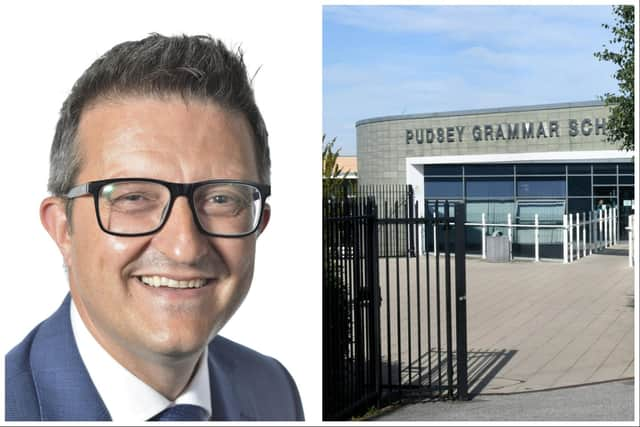Leeds headteacher says chatbot tutors could be used in schools as benefits of AI are explored
and live on Freeview channel 276
Mark McKelvie, the headteacher at Pudsey Grammar School, was experimenting with ChatGPT, the artificial intelligence (AI) chatbot, earlier this month. It has been a source of fascination for many since it launched at the end of last year, with the ability to answer complicated questions and perform tasks at surprising speeds.
Testing its applications, Mr McKelvie fed the software a typical exam question for an A-Level English student. When it returned a “stunning” essay within 30 seconds, he was “blown away”. Its speed and efficiency encouraged him to think more about the possible uses of AI for the Pudsey school.
Advertisement
Hide AdAdvertisement
Hide AdHe said: “There are concerns about it, but there are also massive opportunities. It has the potential to transform teaching in the same way the internet did. The idea of students using an AI tutoring programme, for example, could be really exciting.”


As futuristic as it may sound, strides are being made to develop AI tutors. The US-based organisation Khan Academy has created a chatbot tutor designed specifically for use in schools, called Khanmigo.
“It wouldn’t tell them the answers,” explained Mr McKelvie, “but it would ask them the right questions to develop their understanding. In five years’ time, schools like ours could be buying these programmes and giving them to students for free.”
There have been concerns in other schools about the potential for AI to be used inappropriately by students. One headteacher in Leeds suggested that “plagiarism checkers” might be necessary in the future.
Advertisement
Hide AdAdvertisement
Hide AdBut Mr McKelvie has a laissez-faire attitude about the technology. He said: “If students are using it when they are doing their homework and it is enhancing their learning, then that is fine. But if they are taking their answers verbatim from ChatGPT, then that is a problem.
“I can’t see schools investing in plagiarism software. I think it is more about talking to students about the morality of using AI. That is something that we could weave into our assemblies.”
Nonetheless, concerns have been so great at a school in South London that its headteacher reportedly no longer assigns essays as homework. Mr McKelvie said that this would never be the case at Pudsey Grammar School.
“I couldn’t imagine doing that. It’s how a lot of the subjects are assessed. Students should be able to produce a coherent answer within a given timeframe. I can’t understand how getting rid of essays would help them in the long-term.
Advertisement
Hide AdAdvertisement
Hide Ad“The students who will be using ChatGPT and palming it off as their own work are the ones who will already be cutting and pasting from Google – it is a small minority.”
Teachers could benefit from AI too, according to Mr McKelvie. He said: “Reading and marking students’ work takes a lot of time, so if there was a tool that allowed you to scan in essays and assess whether they have grasped the subject, that would be a gamechanger.
“It would allow you to adapt your teaching without having to read lengthy essays from 30 students. AI has the potential to transform a lot of things – and I am hopeful that it will help in schools.”
